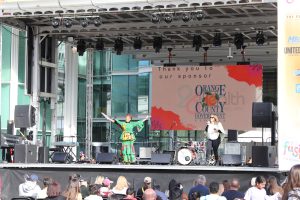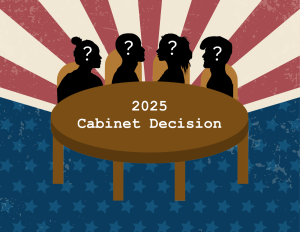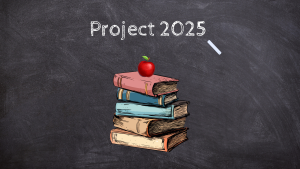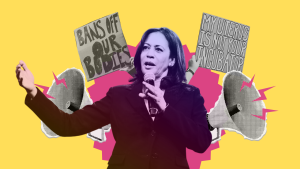The Democracy Project hosted a Politics on Tap event on March 1 to discuss the Russian invasion of Ukraine. Jayla Spencer (‘24) hosted the event, and the featured panelists were Dr. Joan Davison and Dr. Mike Gunter, professors in the Political Science Department. The event was held in Dave’s Boathouse.
Spencer had initial concerns due to the topic’s sensitive nature: “I was nervous because we do have Ukrainian and Russian students on campus, so I wasn’t sure who was going to be in the audience today or what would be said,” she said.
Major themes of the night included interdependence and new authoritarianism. Davison explained that new authoritarianism refers to the type of governmental relationship between executives and citizens where the facade of participation is still present.
As Davison explained, in a standard authoritarian government, citizens are stripped of any rights to participate in their government. Russian President Vladimir Putin’s government, in contrast, does allow for democratic elections, but without any true threat of losing power. In continuing, Davison said that Putin is in his 23rd year of holding office, a clear indication that there are no truly democratic elections occurring.
Gunter discussed the significance of increased global interdependence and its influence on the Ukraine invasion versus Cold War-era disputes. The US and Europe both rely on Russia for oil, as an example, and in parts of Europe such as Germany, this reliance can be as high as 32 percent.
Participants were also concerned about the outcomes of the invasion. Questions about the ending of the war and what to do if Putin does not respond to US sanctions were both posed.
Gunter responded by comparing the latest Ukraine invasion to the Russian annexation of Crimea in 2014. Then, a majority of Russian citizens supported the annexation; today, there is more dissent.
Davison expanded on this point, explaining how sanctions will decrease the quality of life for Russians domestically and abroad. Already, Davison explained, wealthy Russian citizens living in London are unable to access their money in banks. This could cause public opinion of Putin to decline in Russia and may spur change.
One student asked if there should be any concern that this conflict will go nuclear and threaten US citizens. “I’m terrified,” the student said.
Gunter responded pragmatically: “Sure, yeah, you have to be concerned, but you can’t let that concern you. You have to live both in the moment and in the long term at the same time, which is hard to do.”
“Putin is not a terrorist that is wanting to join the afterlife and all the benefits that are supposed to be there,” Gunter added with a light chuckle.
Davison also said that in terms of American involvement, President Biden’s goal was never necessary to save Ukraine, but instead to maintain unity amongst western nations and NATO. She added that in her opinion, this conflict should motivate Congress to reevaluate US defense spending to see if we are allocating funds smartly.
After the event, Spencer said, “Tensions were low, thankfully. Everyone asked very objective, genuinely curious questions. Respect was maintained, and so was decorum. I think it went well, despite the maybe depressing topic for some or concerning [topic] for others.”










Comments are closed.